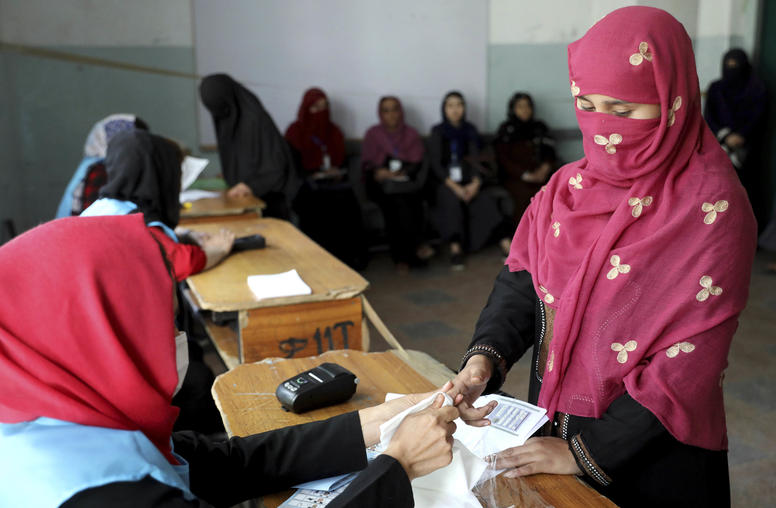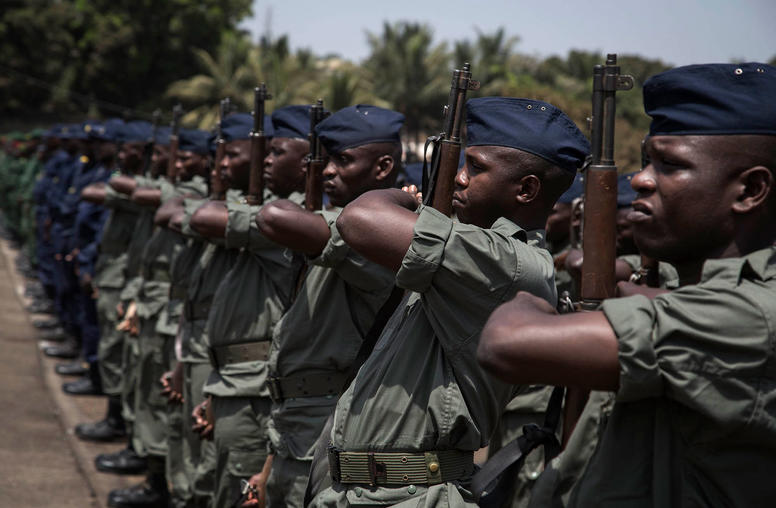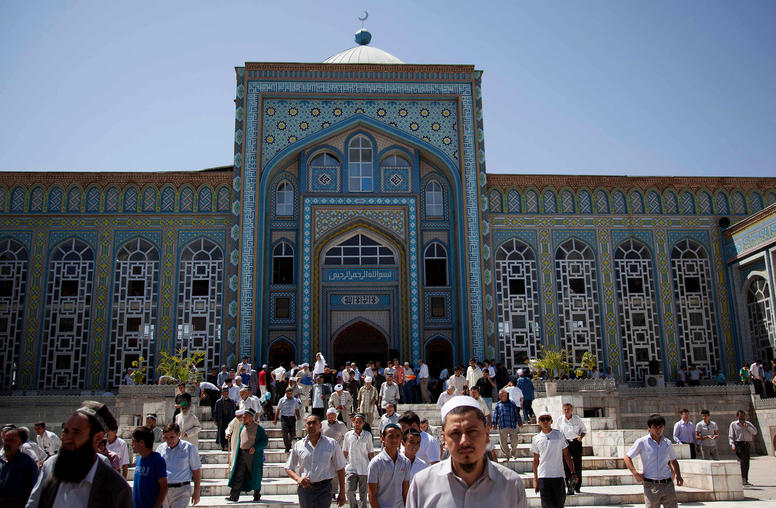Publications
Articles, publications, books, tools and multimedia features from the U.S. Institute of Peace provide the latest news, analysis, research findings, practitioner guides and reports, all related to the conflict zones and issues that are at the center of the Institute’s work to prevent and reduce violent conflict.

Democracy in Afghanistan: Amid and Beyond Conflict
Stable democracy may be an elusive prospect in Afghanistan, but that in itself is no reason to stop talking about it. Although many Afghans might well prioritize security from violence over elections in the short term, voting rights are still widely valued across Afghanistan. This report examines the country’s recent history with elections, democracy, and democratic institutions, and argues that because democracy has a past in Afghanistan, there is good reason to continue to support it.

Protests in Colombia
Steve Hege, regional deputy director for Latin America, testified on July 1, 2021 at the Tom Lantos Human Rights Commission's hearing on "Protests in Colombia." His expert testimony as delivered is presented below.

Lebanon: Assessing Political Paralysis, Economic Crisis and Challenges for U.S. Policy
Mona Yacoubian, senior advisor to the vice president of Middle East & North Africa, testified on July 29, 2021 at the House Foreign Affairs Subcommittee on the Middle East, North Africa, and Global Counterterrorism's hearing on "Lebanon: Assessing Political Paralysis, Economic Crisis and Challenges for U.S. Policy." Her expert testimony as prepared is presented below.

Sarhang Hamasaeed on Iraq’s Progress and Problems
With pivotal elections scheduled for October, USIP’s Sarhang Hamasaeed says Iraqis “want democracy, they’re fighting for it with their lives.” Meanwhile, Iraq is still grappling with simmering discontent among many citizens and the destabilizing role of foreign powers.

Sarhang Hamasaeed on Iraq’s Elections
“All the energy of the country is focused on October 10” as Iraq prepares for crucial parliamentary elections, says USIP’s Sarhang Hamasaeed. “We’ll see if it will produce a government and a parliament that [is] closer to what the people expect … and restore some of the faith of the voters in the process.”

Tunisia: Examining the State of Democracy and Next Steps for U.S. Policy
Dr. Elie Abouaoun, director of Middle East and North Africa Programs, testified on October 14, 2021 at the the House Foreign Affairs Subcommittee on the Middle East, North Africa, and Global Counterterrorism's hearing on "Tunisia: Examining the State of Democracy and Next Steps for U.S. Policy."

Oge Onubogu on Democratic Concerns in West Africa
While West African countries present “some of the steepest declines in democracy,” USIP’s Oge Onubogu says there is “still an overwhelming support” for democratic governance among citizens in the region, which “presents a key opportunity for engagement between African leaders and this administration.”

Joseph Sany on President Biden’s Democracy Summit
Amid a global democratic recession, USIP’s Joseph Sany says President Biden’s Summit for Democracy is an important “statement of solidarity,” but that “if [democracies] want to regain or strengthen their legitimacy,” they must deliver for their people, adding: “If you lose the citizens’ trust, you lose everything.”

Guinea’s Lesson for Strengthening Democracy: Use ‘Peer Power’
As dozens of nations seek to strengthen democracy at this week’s White House summit, indicators for effective methods can be found in Guinea, one of five nations that this year suffered a coup by its military. An overarching lesson is for the United States and other more distant governments and institutions to recognize the greater efficacy of putting regional communities in the lead. For Guinea, this will mean supporting a stronger role by neighboring countries and the Economic Community of West African States (ECOWAS)—a 15 nation grouping that has shown real promise as a promoter of democracy.

Engaging with Muslim Civil Society in Central Asia: Components, Approaches, and Opportunities
When Western policymakers and development practitioners turn their attention to Central Asia, they too often overlook Muslim civil society as a potential partner for addressing the region’s economic and social problems. This report, which is based on dozens of interviews with representatives of Muslim civil society organizations in Kazakhstan, Kyrgyzstan, Tajikistan, and Uzbekistan, is intended to help generate a much-needed conversation about Muslim civil society in Central Asia and how Western donors and practitioners can begin tapping their potential.